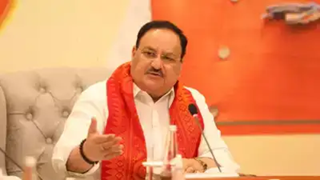
New Delhi: Union health minister J P Nadda on Monday expressed strong concern over the under-utilisation of allocated health funds by states and asked them to focus on improving healthcare infrastructure.
Chairing a session at the 17th Civil Services Day celebrations, Nadda said, “I will not allow this narrative to continue that there’s no money or capacity to spend it. Utilisation certificates are not even submitted for funds already given.”
He recounted a recent visit to a state where allocated funds remained unspent for three years due to repeated tendering and delay in equipment procurement. “Models have changed, new versions have come, but the tender process hasn’t even begun,” he said.
Calling implementation the crux of the problem, Nadda said, “We can aim for the world’s largest health coverage program… we will not let it go down the drain.” He stressed that accountability and coordination across all administrative levels are essential, especially when out-of-pocket expenditure for health has reduced from 62% to 39% – calling it a clear sign of the benefit to common citizens.
Highlighting the need for administrative reform within the health sector, Nadda said that many officials, including state health directors and chief medical officers, lack proper training and are hesitant to make decisions. “They are administratively incapacitated. We must support them through capacity building and hand-holding,” he said.
He pointed out that many district-level administrators are unaware of the Program Implementation Plan (PIP) under the National Health Mission (NHM), which is central to planning and executing healthcare initiatives.
“How can they plan if they don’t even know the year’s implementation plan?” Nadda questioned, and urged IAS officers to take ownership of the PIP and involve district officials in planning before forwarding it to Delhi.
He also reiterated govt’s long-term vision for Ayushman Bharat, which includes the PM-JAY insurance scheme and Ayushman Arogya Mandirs. These, he said, stemmed from extensive consultation since 2015, unlike earlier fragmented health policies. “This is India’s first holistic and inclusive health policy,” he said, noting its emphasis on geriatric care and early screening for non-communicable diseases.
“By the age of 30, everyone should be visiting Arogya Mandirs for screening hypertension, diabetes, oral and cervical cancer, and mental and dental health,” he said, underlining the shift from treatment to preventive healthcare.

